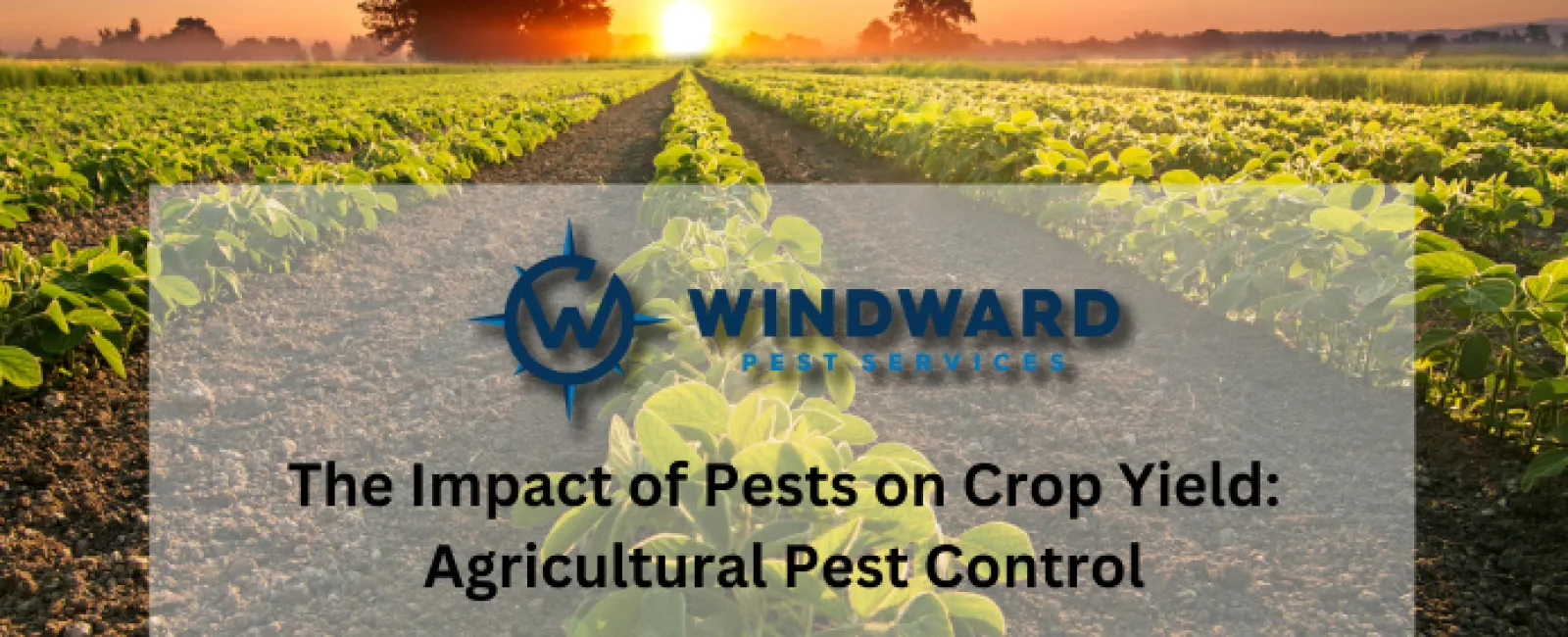Agriculture forms the backbone of the global economy, providing food, raw materials, and employment to billions of people. However, pests pose a significant threat to crop production, leading to substantial economic losses and food insecurity. Effective pest control is essential to ensure high crop yields and maintain agricultural productivity. This blog delves into the impact of pests on crop yield and explores various agricultural pest control methods, with a focus on services available in Atlanta, such as Windward Pest Control Services, which offers Interior and Exterior Pest Treatments, and termite treatments specific to Georgia Termites.
The Impact of Pests on Crop Yield
Pests, including insects, weeds, and pathogens, can drastically reduce crop yields. They damage crops directly by feeding on them and indirectly by transmitting diseases. The impact of pests varies depending on the type of pest, the crop, and the stage of crop development.
Insects: Insects like aphids, caterpillars, and beetles can cause significant damage to crops. They feed on leaves, stems, roots, and fruits, leading to reduced photosynthesis, stunted growth, and lower yields. For instance, aphids suck the sap from plants, weakening them and making them more susceptible to diseases.
Weeds: Weeds compete with crops for nutrients, water, and sunlight. They can reduce crop yields by up to 34%, as they are often more aggressive in acquiring resources. Additionally, weeds can harbor pests and diseases that can further harm crops.
Pathogens: Fungi, bacteria, and viruses can cause diseases in crops, leading to significant yield losses. For example, fungal diseases like rusts and blights can destroy entire fields if not controlled timely.
Pest Control Methods
Effective pest control involves a combination of preventive and curative measures. Here are some common pest control methods used in agriculture:
Cultural Control: This involves farming practices that reduce the prevalence of pests. Crop rotation, for instance, can break the life cycle of pests. Planting pest-resistant crop varieties and practicing proper sanitation in the field can also minimize pest infestations.
Biological Control: This method uses natural predators or parasites to control pest populations. For example, ladybugs are natural predators of aphids, and certain nematodes can target soil-dwelling insect pests.
Chemical Control: Pesticides are commonly used to control pests. However, their use needs to be carefully managed to avoid environmental damage and the development of pesticide-resistant pests. Integrated Pest Management (IPM) strategies often combine chemical control with other methods to minimize pesticide use.
Mechanical Control: This includes physical methods like hand-picking pests, using traps, and installing barriers to protect crops. While labor-intensive, mechanical control can be effective, especially in small-scale farming.
Integrated Pest Management (IPM): IPM is a holistic approach that combines various pest control methods to manage pest populations effectively and sustainably. It involves regular monitoring, accurate pest identification, and the use of multiple control strategies to keep pest populations below economically damaging levels.
Pest Control Services in Atlanta
Atlanta, being a hub of agricultural activity, has several pest control services that offer comprehensive solutions for both residential and agricultural settings.
Windward Pest Services offers a range of services designed to protect crops and properties from pest infestations. With expertise in handling various pests, including insects and rodents, Windward ensures that both interior and exterior spaces remain pest-free. Utilizing advanced techniques and environmentally friendly products, they provide customized pest management plans tailored to suit specific needs, ensuring effective and sustainable solutions for their clients.
Effective pest control requires treating both the interior and exterior of properties. Windward Pest Services focuses on creating a barrier to prevent pests from entering homes and agricultural facilities. Our comprehensive approach includes soil treatments, perimeter sprays, and baiting systems to control pest populations and protect crops from damage. This dual approach not only addresses current infestations but also prevents future problems by maintaining a pest-free environment.
Regular inspections are crucial for early detection and prevention of pest infestations. Windward Pest Services conducts thorough inspections of agricultural fields, storage areas, and residential properties. Our trained inspectors identify potential pest problems and recommend appropriate control measures, ensuring that pest issues are addressed before they escalate. These inspections, combined with pest management solutions—including soil treatments, foliar sprays, and fumigation—help control pests like aphids, beetles, and caterpillars. Additionally, Windward offers Integrated Pest Management (IPM) strategies to minimize pesticide use and promote sustainable agriculture.
Termite Treatment in Georgia
Termites are a significant concern for both agricultural and residential properties in Georgia. These pests can cause extensive damage to wooden structures and crops, leading to substantial economic losses.
Georgia Termites
Georgia's warm and humid climate is conducive to termite activity. These pests feed on cellulose, which is found in wood and many crops, including corn and sugarcane. Effective termite treatment involves a combination of soil treatments, baiting systems, and regular inspections to prevent infestations.
Termite Treatment Options
Soil Treatments: Applying termiticides to the soil creates a barrier that prevents termites from entering buildings or crop fields. This method is effective for long-term termite control.
Baiting Systems: Baiting systems involve placing bait stations around the property. Termites feed on the bait and carry it back to their colony, effectively eliminating the entire colony over time.
Wood Treatments: Treating wooden structures with termiticides can prevent termite infestations. This method is particularly useful for protecting storage facilities and agricultural buildings.
Regular Inspections: Regular termite inspections help detect early signs of infestations, allowing for prompt treatment. Windward Pest Services, for example, offer detailed termite inspections and customized treatment plans to protect properties from termite damage.
The Importance of Professional Pest Control
Professional pest control services play a crucial role in managing pest populations and protecting crop yields. They have the expertise, tools, and products to address pest issues effectively. Here are some reasons why professional pest control is essential:
Expertise: Pest control professionals have extensive knowledge of pest biology and behavior. They can accurately identify pests and recommend the most effective control methods.
Safety: Many pesticides can be hazardous if not used correctly. Professionals follow strict safety protocols to ensure that pest control treatments are safe for humans, animals, and the environment.
Efficiency: Professional pest control services use advanced tools and techniques to address pest problems quickly and effectively. This minimizes crop damage and reduces the risk of economic losses.
Sustainability: Professional pest control services often incorporate IPM strategies, promoting sustainable pest management practices that minimize the use of harmful chemicals and protect the environment.
Pests pose a significant threat to agricultural productivity, leading to substantial crop yield losses and economic damage. Effective pest control is essential to ensure high crop yields and maintain the sustainability of agricultural practices. In Atlanta, services like Windward Pest Services offer comprehensive solutions for managing pest populations and protecting crops. By utilizing a combination of cultural, biological, chemical, and mechanical control methods, these services help farmers and property owners effectively manage pest issues and ensure the long-term health of their crops and properties.

